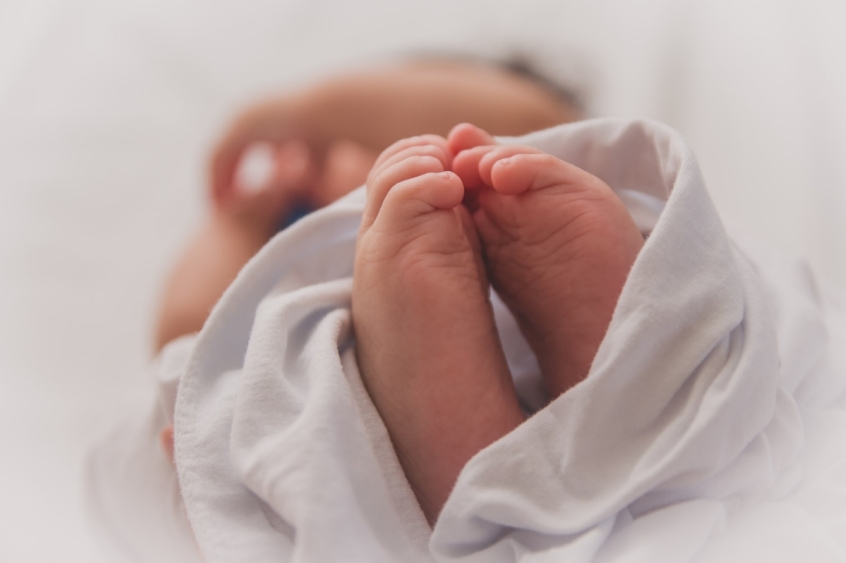
A new report is calling for a radical rethink in the way medical professionals engage with parents expecting a baby with Down's syndrome.
The report, by Postive about Down Syndrome (PADS), said that there was "systemic discrimination" towards parents of babies diagnosed with the condition.
It cites a survey of 1,410 women who gave birth to a baby with Down's syndrome since the year 2000, which found that over two thirds (69%) had been offered a termination.
Nearly half (46%) said that after expressing a desire to continue with the pregnancy, they were asked again if they wished to terminate.
Most (91%) said that they were offered further tests after being told that their baby had a high chance of having Down's syndrome. Of those who declined having more tests done, 44% said they felt under pressure to go in for more testing.
One mother who took part in the study, Emma Mellor, whose 5-year-old child Jaimie has Down's syndrome, said she had been repeatedly offered a termination despite informing doctors that she wanted to keep the baby.
"In all honesty I think we must have been offered about 15 terminations, even though we made it really clear that that wasn't an option for us, but they really seemed to push and really seemed to want us to terminate," she said.
"At 38 weeks they made it really, really, really clear, that if I changed my mind on the morning of the induction to let them know, because it wasn't too late; until the baby had started travelling down the birth canal, I could still terminate."
Another participant, Nicola Sparrow, mother of a 3-year-old daughter with Down's syndrome, shared a similar experience: "The first thing that she (consultant) said to me was, if you come in and see us this week, we'll arrange a termination for you. She sat us down and told us all the negative things about having a child with Down's syndrome and she said, that you're only 28, you're both so young, you should terminate and start again.
"I was incredibly shocked that I was being asked this at 37 weeks pregnant, after just being told that I was being induced the following morning, I was being told I still had options to whether I was going to have my baby or not and then also that if she was born not breathing or struggling to breathe, that they were willing to not help my baby, they were willing to just leave her."
PADS founder Nicola Enoch said there was an "overriding assumption" among medical professionals that mothers of Down's syndrome babies should terminate.
"Women are making life or death decisions influenced by outdated and prejudicial views by many medical professionals," she said.
"Expectant women are not given accurate information about the reality of life with Down's syndrome. There is very limited support and an overriding assumption to terminate. It is no wonder that 90% of women go on to terminate given these circumstances.
"I know I could have been one of those 90%, I would have considered termination had I received a definitive result and that terrifies me – how many women are being misinformed and misled."
The research was compiled in partnership with the Don't Screen Us Out campaign group and the Down's Syndrome Research Foundation UK (DSRF).
Together, they have written a charter urging medical practitioners to ensure that Down's syndrome diagnoses are shared with parents in a non-directive and non-judgemental way, and that they are shown the same level of respect and care as other expectant parents.
They are also calling on MPs to support the roll out of standardised language across all health care trusts and to ensure that parents attending screenings are also given access to information and support groups.
Lynn Murray, founder of Don't Screen Us Out said: "The inherent inequalities in antenatal screening have to be a consideration of all staff involved in screening programmes and must be addressed.
"As such, the social model of disability should take on a greater importance than previously afforded and positive awareness should remain uppermost in people's minds."
Dr Elizabeth Corcoran, of DSRF, added: "Research into the health issues affecting people with Down's syndrome has been hampered and blocked by the ingrained belief that the only way to help the Down's syndrome community is to reduce their numbers.
"Millions [of pounds] in funding has been poured into running and refining the screening [process] whilst only £5.33 per person per year is spent on research that could improve the lives of people with Down's syndrome."













